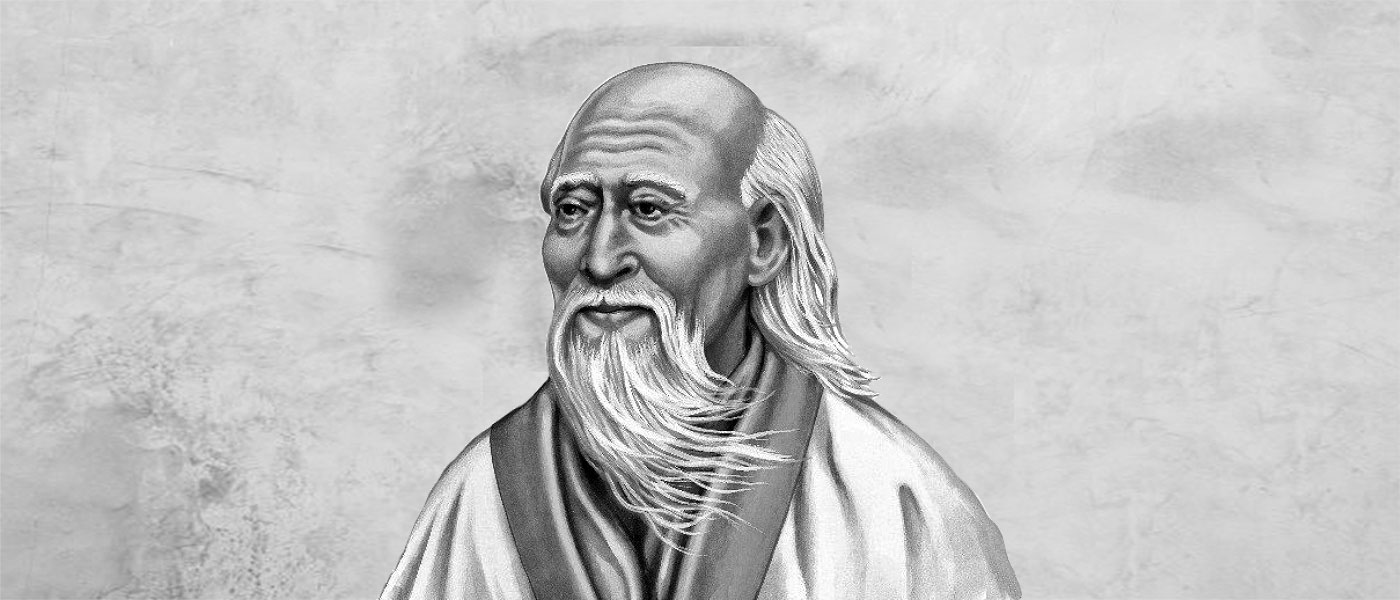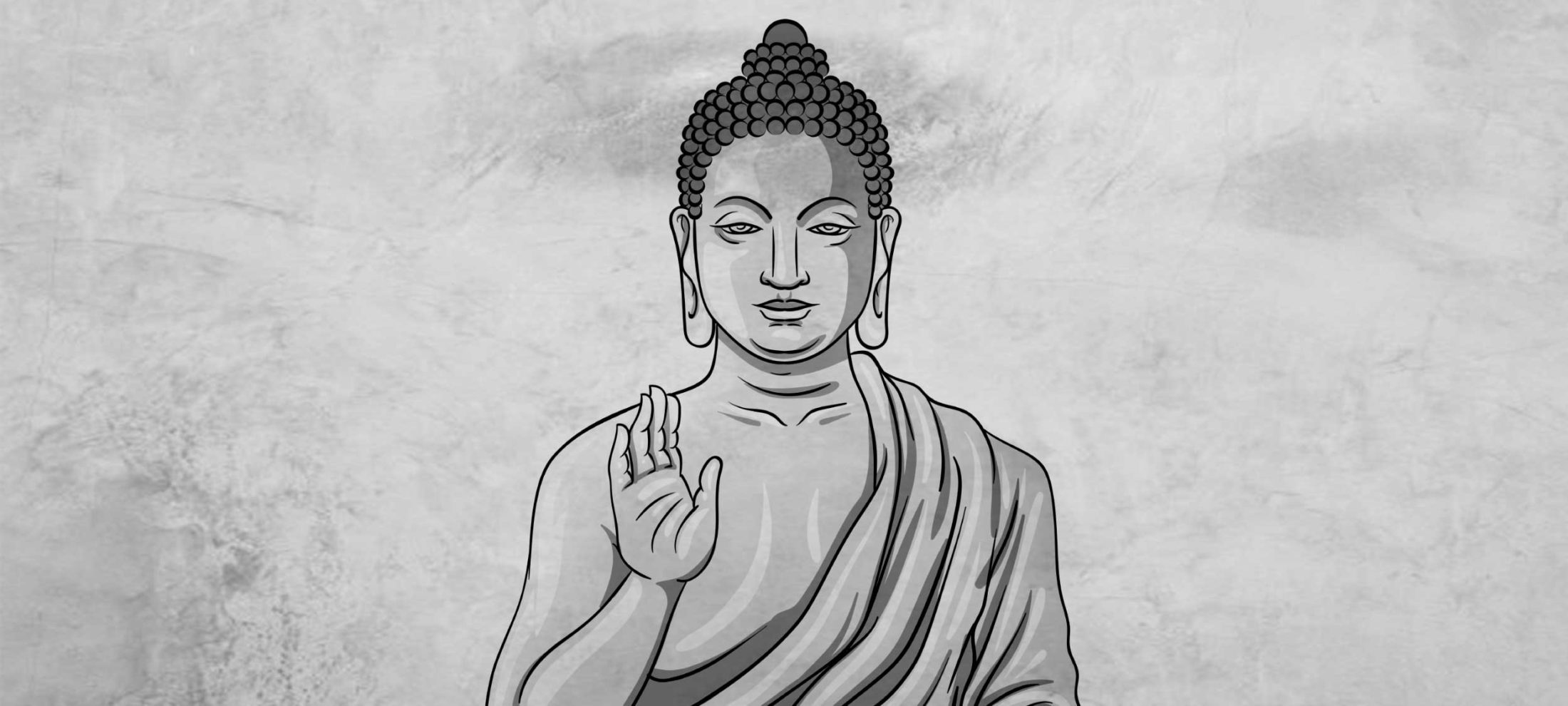Ethics Explainer: Moral Relativism

Moral relativism is the idea that there are no absolute rules to determine whether something is right or wrong. Unlike moral absolutists, moral relativists argue that good and bad are relative concepts – whether something is considered right or wrong can change depending on opinion, social context, culture or a number of other factors.
Moral relativists argue that there is more than one valid system of morality. A quick glance around the world or through history will reveal that no matter what we happen to believe is morally right and wrong, there is at least one person or culture that believes differently, and holds their belief with as much conviction as we do.
This existence of widespread moral diversity throughout history, between cultures and even within cultures, has led some philosophers to argue that morality is not absolute, but rather that there might be many valid moral systems: that morality is relative.
Understanding Moral Relativism
It’s worth pointing out that the philosophical notion of moral relativism is quite different from how the term is often used in everyday conversation. Many people have been known to say that others are entitled to their views and that we have no right to impose our view of morality on them.
This might look like moral relativism, but in many cases it’s really just an appeal for tolerance in a pragmatic or diplomatic sense, while the speaker quietly remains committed to their particular moral views. Should that person be confronted with what they consider a genuine moral violation, their apparent tolerance is likely to collapse back into absolutism.
Moral relativism is also often used as a term of derision to refer to the idea that morality is relative to whatever someone happens to believe is right and wrong at the time. This implies a kind of radical anything-goes moral nihilism that few, if any, major philosophers have supported. Rather, philosophers who have advocated for moral relativism of some sort or another have offered far more nuanced views. One reason to take moral relativism seriously is the idea that there might be some moral disagreements that cannot be conclusively resolved one way or the other.
If we can imagine that even idealised individuals, with perfect rationality and access to all the relevant facts, might still disagree over at least some contentious moral matters – like whether suicide is permissible, if revenge is ever justified, or whether loyalty to friends and family could ever justify lying – then this would cast doubt on the idea that there is a single morality that applies to all people at all times in favour of some kind of moral relativism.
Exploring Relativity
The key question for a moral relativist is what morality ought to be relative to. Gilbert Harman, for example, argues that morality is relative to an agreement made among a particular group of people to behave in a particular way. So “moral right and wrong (good and bad, justice and injustice, virtue and vice, etc.) are always relative to a choice of moral framework. What is morally right in relation to one moral framework can be morally wrong in relation to a different moral framework.
And no moral framework is objectively privileged as the one true morality.
It’s like different groups playing different codes of football, wherein one code a handball might be allowed but in another, it’s prohibited. So whether handball is wrong is simply relative to which code the group has agreed to play.
Another philosopher, David Wong, argues for “pluralistic relativism,” whereby different societies can abide by very different moral systems. So morality is relative to the particular system they have constructed to solve internal conflicts and respond to the social challenges their society faces.
However, there are objective facts about human nature and wellbeing that constrain what a valid moral system can look like, and these constraints “are not enough to eliminate all but one morality as meeting those needs.” They do eliminate perverse systems, like Nazi morality that would justify genocide, but allow for a wide range of other valid moral views.
Moral relativism is a much misunderstood philosophical view. But there is a range of sophisticated views that attempt to take seriously the great diversity of moral systems and attitudes that exist around the world, and attempts to put them in the context of the social and moral problems that each society faces, rather than suggesting there is a single moral code that ought to apply to everyone at all times.
Ethics in your inbox.
Get the latest inspiration, intelligence, events & more.
By signing up you agree to our privacy policy
You might be interested in…
Opinion + Analysis
Health + Wellbeing, Relationships, Society + Culture
Look at this: the power of women taking nude selfies
Opinion + Analysis
Relationships
The ANZAC day lie
Explainer
Relationships
Ethics Explainer: Stoicism
Explainer
Relationships
Ethics Explainer: Lying
BY Dr Tim Dean
Dr Tim Dean is Philosopher in Residence at The Ethics Centre and author of How We Became Human: And Why We Need to Change.
Ethics Explainer: Liberalism

Ethics Explainer: Liberalism
ExplainerBusiness + LeadershipPolitics + Human Rights
BY Dr Tim Dean 18 JAN 2021
Liberalism is founded on the belief that individual freedom should be the basis of a just society.
Who should decide how you live your life: where you reside; what career you choose; whom you can marry; and which gods you worship? Should it be your parents? Or your religious or community leaders? Should it be determined by the circumstances of your birth? Or perhaps by your government? Or should you ultimately be the one to decide these things for yourself?
If you answered the latter, then you’re endorsing the values of liberalism, at least in the broadest sense. Liberalism is, at its heart, the belief that each individual person has moral priority over their community or society when it comes to determining the course of their life.
This primacy of individual freedom and self-determination might seem self-evident to people living in modern liberal democracies, but it is actually a relatively recent innovation.
The Birth of Liberalism
In most societies throughout history and prehistory, one’s beliefs, values and social role were imposed on them by their community. Indeed, in many societies since agricultural times, people were considered to be the property of their parents or their rulers, with next to no-one having genuine freedom or the power of self-determination.
Brave (or foolhardy) was the medieval serf who took it upon themselves to defy their local church to practice their own religion, or defy their family tradition to seek out their dream job, or defy their clan to marry whomever their heart desired.
The seeds of modern liberalism were planted in England in the 13th century with the signing of the Magna Carta, which weakened the unilateral power of the King over his minions. This started a process that eventually enshrined a number of individual rights in English law, such as a right to trial by jury and equality before the law.
Soon even rulers – whether monarch or government – came to receive their legitimacy not from divine authority, tradition or fiat but from the will of the people. If the rulers didn’t operate in the interests of the people, the people had the right to strip that legitimacy from them. This made democracy a natural fit for nations with liberal sensibilities.
The other motivating force for liberalism was the horrifically destructive religious wars that wracked Europe after the Reformation, culminating in the Peace of Westphalia in 1648. Given the millions of lives lost due to religious and ideological differences, many people came to see that tolerance of different beliefs and religious practices might be a better alternative to imposing one’s beliefs on others by force.
Modern Liberalism
Liberalism was fleshed out as a comprehensive political philosophy by thinkers such as Thomas Hobbes, Jean-Jacques Rousseau, John Locke and John Stuart Mill, and more recently by John Rawls. While they differed in their emphases and recommendations, all liberal thinkers were committed to the core idea that individuals were – and ought to be – fundamentally free to live as they choose.
Philosopher John Locke argued that liberalism stemmed from our very nature, arguing that all people are essentially in “a state of perfect freedom to order their actions, and dispose of their possessions and persons as they think fit, within the bounds of the law of Nature, without asking leave or depending upon the will of any other man.”
Most liberal thinkers argued that individual freedom should only be limited in very special circumstances.
One of those limitations was not impinging upon the freedom of others to live according to their own beliefs and values, hence the importance of tolerance and preventing harm against others. As they say, your freedom to swing your arm ends where another person’s nose begins.
One common theme of liberalism is the importance of free speech. John Stuart Mill, for example, argued that each individual ought to be able to seek the truth for themselves rather than being obliged to accept the views imposed on them by authorities or tradition.
And in order to seek truth, they need to be able to explore, express and interrogate all beliefs and arguments. And the only way to do that was to allow wide-ranging free speech. “There ought to exist the fullest liberty of professing and discussing, as a matter of ethical conviction, any doctrine, however immoral it may be considered,” he wrote.
This freedom of speech should be limited only in very particular circumstances, such as when that speech is likely to cause direct harm to others. So shouting “fire” in a packed theatre when no such fire exists is an abuse of free speech.
This “harm principle” is still a topic of considerable debate amongst liberals and their opponents, especially around what ought to be considered sufficient harm to justify suppressing speech.
Other liberal thinkers emphasised the fact that not every person was equally able to exercise their freedom through no fault of their own. Poverty, sexism, racial discrimination and other systemic barriers mean that freedom and power are unequally distributed.
This led to what is often called “social justice” liberalism, which seeks to remove those social barriers and enable all people to exercise their freedom to the fullest extent. Some focused on economic redistribution, such as the liberal socialists, while others focused on social barriers, like feminists and anti-discrimination campaigners.
Ethics in your inbox.
Get the latest inspiration, intelligence, events & more.
By signing up you agree to our privacy policy
You might be interested in…
Opinion + Analysis
Politics + Human Rights
The Constitution is incomplete. So let’s finish the job
Opinion + Analysis
Climate + Environment, Politics + Human Rights, Relationships
A burning question about the bushfires
Opinion + Analysis
Business + Leadership
How to spot an ototoxic leader
Explainer
Politics + Human Rights, Relationships
Ethics Explainer: Critical Race Theory
BY Dr Tim Dean
Dr Tim Dean is Philosopher in Residence at The Ethics Centre and author of How We Became Human: And Why We Need to Change.
Free speech has failed us

I used to believe in free speech. I used to believe in the power of rational discourse.
I used to believe in what Jurgen Habermas called the “unforced force” of the better argument. I used to believe in John Stuart Mill’s riff that free speech is what keeps superstition and stifling tradition at bay. I used to believe the solution to an abundance of bad speech was more speech.
However, I’m currently going through a somewhat unsettling process of reconsidering these deeply held views. The last two decades has been one long demonstration of the failures of public discourse to drive towards better solutions to the problems we face.
I hardly need to cite the failure of public discourse to prevent the folly of the wars following September 11 and the catastrophic regional destabilisation they caused, or to reform the economic institutions that caused the Global Financial Crisis, or to improve the response to it that ended up bailing out the perpetrators at the expense of the victims, or bring peace to the escalating culture wars that are fracturing nations, or prevent the national self immolation that is Brexit, or stop the election of a dangerously ill-informed narcissist of dubious moral character to the Presidency of the United States, or combat the ongoing misinformation campaign that is resisting action on one of the world’s most urgent challenges: dealing with climate change. And that’s not even an exhaustive list.
Free speech has failed to live up to its liberal promise. It has failed to float the best reasons and arguments to the top and sink the worst ones to the bottom.
Free speech has failed to live up to its liberal promise. It has failed to float the best reasons and arguments to the top and sink the worst ones to the bottom. It has failed to prevent those who actively work to pervert speech from winning over the voting public. It has empowered those who would wilfully employ their reach to promote their ideological agenda. Meanwhile, those who stick to the rules of rational discourse are left shuffling footnotes and politely yelling reasons into the void.
So when The Conversation announced recently that it will be taking a “zero-tolerance approach to moderating climate change deniers, and sceptics” in the comments on its articles, I was not shocked.
Once upon a time, we viewed #ClimateChange sceptics as merely frustrating. Not anymore.
As a publisher, we won’t perpetuate ideas that will destroy the planet.@mishaketch explains @ConversationEDU‘s zero-tolerance for climate deniers: https://t.co/VbRmFWWycC
— The Conversation (@ConversationEDU) September 18, 2019
Only a year ago, I would have agreed with the ABC’s Media Watch that “The Conversation is wrong to ban anyone’s views, unless they’re abusive, hateful or inciting violence.” I would have defended the right of the ignorant, misinformed and outright malicious to say their piece and have it shredded by other less ignorant, more informed and hopefully charitable readers.
After all, what’s the alternative? We shut down speech and enable one particular narrative to dominate? Who’s in charge of that narrative? Can we trust them to have more reliable access to the truth? What do we do if that narrative is wrong?
I’m still painfully aware of the importance of these questions, and how hard they are to answer in any satisfying way. And yet, the evidence is clear to me now that in many cases more speech is not always in the best interests of truth or humanity.
In good faith
What has fundamentally changed in recent months is the way I think about free speech and the possibility of rational discourse in general.
Free speech is not an absolute good; it is not an end unto itself. Free speech is an instrumental good, one that promotes a higher good: seeking the truth. That’s the canonical account from John Stuart Mill that still underlies much of our thinking around free speech today.
But free speech only fulfils its truth-seeking function when all agents are speaking in good faith: when they all agree that the truth is the goal of the conversation, that the facts matter, that there are certain standards of evidence and argumentation that are admissible, that speakers have a duty to be open to criticism, and that there are many modes of discourse that are inadmissible, such as intimidation, insults, threats and the wilful spread of misinformation. Mill assumed all too readily that such good will was commonplace.
But free speech only fulfils its truth-seeking function when all agents are speaking in good faith.
This doesn’t mean that all speech is truth-seeking. In fact, most everyday speech is not about the truth at all. Usually the correct answer to “does my bum look big in this” is “no”, irrespective of the truth. Most speech is about reinforcing relationships, establishing identity or passing the time. Some speech is about subjective issues or values which may not admit true or false answers. Free speech protects this too. But for some speech, the facts do matter, and that’s where free speech is failing us.
In order for truth-seeking free speech to work, we need strong social norms that promote good faith. And it’s precisely these norms that have broken down in recent years (not that they were ever very strong). And this is because humans are not nearly as rational as we (or Mill) would like to think. And we’re painfully easy to manipulate.
When I teach critical thinking, I give the usual cautionary spiel about not flinging out argumentative fallacies, like the old ad hominem, ad populum or slippery slope. But the very fact that I have to give that spiel is because these fallacies work. When employed effectively, you’ll “win” a lot more arguments using fallacies than by playing by the rules – if you consider persuading/intimidating/misleading someone to accept your point of view a “win.”
I similarly caution students to be wary of the power of appeals to emotion and the force of social pressure, and to be mindful of cognitive biases that can lead our thinking astray. Again, these are important because they are the mechanisms that actually motivate many of our beliefs and that can be most effectively used to persuade others.
What I don’t say – but maybe I should – is that critical thinking is useful when it comes to policing one’s own thoughts, but it’s pitifully impotent when it comes to changing others’ minds. If you start throwing syllogisms across the dinner table, or politely point out that someone is affirming the consequent at the pub, or hope that revealing the contradictions embedded in someone’s assumptions in a comment thread on Facebook is going to change their mind, you’re quickly going to find out you’ve joined the ranks of those politely yelling reasons into the void. I know only too well what that feels like.
Anti-social media
Compounding this is the fact that we have gone to great lengths to build new technologies that promote the worst features of bad faith discourse. If you wanted to design a means of communication that made rational argumentation as difficult as possible yet rewarded the use of every argumentative fallacy under the sun, you’d be hard pressed to top Twitter. It only allows enough characters to express conclusions, not premises. The Like button gives the same weight to the expert as the ignoramus. Status is earned through number of followers, which is like institutionalising the fallacy of ad populum.
Facebook is just as bad for different reasons. Not long ago, if you had a penchant for conspiracy theories, racial vilification or fringe anti-science theories, you’d be hard pressed to find enough like-minded nutjobs in your neighbourhood to hold a bi-monthly tin foil hat dinner. Now, you can join with thousands of like-minded cranks from all around the world on a daily basis to reinforce and radicalise your views.
There’s also evidence that a group of people with diverse views will tend to gravitate towards the most extreme views in the group. And that people who believe one conspiracy theory tend to believe in and share many. And that cultivating outrage only promotes more animosity towards one’s perceived opponents and encourages greater retributive invective and bad faith.
There’s also abundant evidence that people find falsehoods to be more credible the more often they encounter them, even if they’re posted by someone who’s debunking them. As such, falsehoods spread more easily on social media than facts. So the outrage industry is self-sustaining, as even those raging against them share them with their friends, thus spreading the poison even further. (This is why I urge everyone to STOP SHARING GARBAGE on social media, even if you’re intending to debunk it, but particularly if it just pisses you off. The beast feeds on your friends’ eyeballs.)
Add the well known bubble effect, which filters out dissenting views and reinforces in-group identity, and bad faith is all but guaranteed. Free speech in this context only facilitates a slide away from the truth.
That being so, it’s with some alarm that I note that Facebook is now exempting politicians from its normal community standards – the same standards that are intended to prevent bad faith discourse like hate speech and harassment. According to Facebook’s new VP of Global Affairs and Communications, the former UK politician Nick Clegg, it’s because Facebook’s crew “are champions of free speech and defend it in the face of attempts to restrict it. Censoring or stifling political discourse would be at odds with what we are about.”
Clegg invokes a tennis analogy to describe Facebook’s approach to speech: “our job is to make sure the court is ready – the surface is flat, the lines painted, the net at the correct height. But we don’t pick up a racket and start playing. How the players play the game is up to them, not us.”
Here’s a better analogy. The court was never flat. Human psychology means it started off warped, and it’s twisted even more by the technology created by Facebook itself. The players know this, and some are exploiting it to their advantage, and to humanity’s disadvantage. If free speech is meant to do anything at all positive, then it takes active intervention to flatten the court, not a hands-off wilful abdication of responsibility.
If free speech is meant to do anything at all positive, then it takes active intervention to flatten the court, not a hands-off wilful abdication of responsibility.
Hit prediction: this policy is going to be a disaster, and Facebook will revoke it with grievous apologies either before or after the 2020 US Presidential election after a spate of heinous posts by politicians are left to fester on our feeds.
What worries me the most is that those who understand the failings of free speech the best are the ones who know how to use speech to manipulate us to their ends. It’s the political operatives, the Cambridge Analytica’s, the climate change deniers, the alt-right meme machines, the political demagogues. They are the ones who benefit the most from free speech, not the experts, not the scientists, not the academics, not those individuals who are willing to do some homework and engage in good faith with an open mind.
So, to those who care about facts, evidence and the power of rational discourse to help us arrive at the truth, I say: WAKE UP. We’re losing, and with us, truth and humanity. The mongers of misinformation and agents of bad faith are driving us into the dirt, and we’re down here tilling the very soil that allows the weeds to flourish.
Shut it down
Free speech has failed us. That’s why I think The Conversation is justified in banning certain forms of well established misinformation on its site, whether it’s delivered by trolls or people who are misguided enough to believe it.
The Conversation as a website is predicated on the importance of expertise. It only publishes articles by qualified academics, and only allows them to write on areas in which they are experts. It encourages a diversity of views and debate amongst its authors. I know, because (full disclosure) I used to work there, editing the science and technology section. True to its name, The Conversation also wants to encourage discussion and debate amongst readers. But it is in no way obliged to give a platform to anyone. It is able to determine the standards of discourse in its own domain.
So if the “conversation” in the comments section slips well outside the bounds of respect for evidence, reason or good faith discourse that The Conversation seeks to promote, then it ought to be allowed to disqualify it. It’s not like the readers can’t spread their views on other platforms with lower standards. Sadly, there’s an abundance of those around these days. Freedom of speech doesn’t require everyone to allow just anyone to walk into in their garden and plant whatever they want.
Freedom of speech doesn’t require everyone to allow just anyone to walk into in their garden and plant whatever they want.
That said, I am convinced that we need some forums where free speech can operate in an expansive way. At the moment, I think universities are the best candidates, which is why I resist the deplatforming of academics or speakers on campus, no matter how controversial their views. Universities need to get better at managing this, because they’re one of the last bastions of truly open enquiry.
But I’m increasingly coming to believe that we need to get real about the failures of free speech in many public forums, and fight back against those who would pollute discourse with bad faith. I’m not convinced we should go as far as Herbert Marcuse, who argued that civil discussion was futile, so all that’s left is violence. But I do think we can’t maintain the naive position that “more speech is always a good thing.”
The paradox of free speech
I’ll be the first to say I don’t know what to do. But I have some initial ideas. I suspect there’s a short term and a long term solution. In the long term, we want to rehabilitate public discourse by encouraging good faith. That’s a decades long project, and one that will require the rebuilding of a great deal of social capital that has been degrading over decades.
This is not necessarily a project that is conducted through rational discourse itself. Rather, it’s something that requires constructive social discourse. It requires relationship building, the restoration of trust, the separation of belief from identity, and the buttressing of social norms that make rational discourse a possibility.
And in the short term, I’m increasingly open to shutting down speech that is not only conducted in bad faith, but is polluting discourse itself, so encouraging more bad faith. The problem of dealing with speech that corrupts speech is related to Karl Popper’s famed “paradox of tolerance.” If we believe that tolerance is good, how should we treat those who are intolerant? If we tolerate them, won’t they end tolerance? And if we don’t tolerate them, doesn’t that make us intolerant?
The solution to this paradox is elegantly expressed by Peter Godfrey-Smith and Benjamin Kerr in an article published on – ironically enough – The Conversation. Godfrey-Smith argues that in order to protect “first-order” of tolerance of individual actions – say, certain religious practices or having a homosexual relationship – means we must be “second-order” intolerant of actions that are themselves intolerant of these actions, and it’s in no way contradictory or hypocritical to do so. That’s why we have anti-discrimination laws that are explicitly intolerant of intolerance.
Similarly, in order to protect the power of free speech to help seek the truth, I think we need to be more intolerant of speech that subverts the very possibility of speech to seek the truth. Crucially, that doesn’t mean shutting down speech by people who are just ignorant or wrong. What it does mean is shutting down bad faith speech that muddies the waters, that spreads misinformation, that threatens or coerces, or that exploits known psychological biases to mislead.
in order to protect the power of free speech to help seek the truth, I think we need to be more intolerant of speech that subverts the very possibility of speech to seek the truth.
There’ll be a price to shutting down certain types of discourse in some forums. Some legitimate speech may be hampered. But if the price of not doing it is more polluted discourse, more bad faith, more wars, more Brexits, more Trumps, and a world that is more than 4 degrees warmer, then I know which side of the trade-off I prefer.
I still believe in the potential of free speech to seek the truth. I still believe it ought to be practiced in some forums. I still believe it’s something worth fighting to enable and preserve. But I think you only need to look at the last two decades – and speculate about the two decades to come – to realise that our current approach to free speech has failed. And the stakes are high.
Ethics in your inbox.
Get the latest inspiration, intelligence, events & more.
By signing up you agree to our privacy policy
You might be interested in…
Opinion + Analysis
Relationships
Who are you? Why identity matters to ethics
Opinion + Analysis
Business + Leadership, Relationships
Workplace romances, dead or just hidden from view?
Opinion + Analysis
Relationships, Society + Culture
Five dangerous ideas to ponder over the break
Big thinker
Relationships
Big Thinker: Friedrich Nietzsche
BY Dr Tim Dean
Dr Tim Dean is Philosopher in Residence at The Ethics Centre and author of How We Became Human: And Why We Need to Change.
Big Thinkers: Laozi and Zhuangzi

Daoism is one of the three pillars of Chinese philosophy, and its founders Laozi and Zhuangzi implore us to unshackle ourselves from the constraints of the way we think and live a spontaneous, authentic life.
When many of us think of “philosophy”, we conjure images of toga-wearing Greeks debating in the agora in Athens. Or Renaissance thinkers like René Descartes contemplating consciousness in his armchair. Or perhaps Simone de Beauvoir and Jean-Paul Sartre smoking Gauloises in the cafés of post-war Paris.
But there is another tradition of philosophy that comes out of China that is just as deep and diverse, with just as long a history. It has considered many of the same questions as Western philosophy, such as the nature of reality, the possibility of knowledge and how to live a good life, but has sought to answer these questions in very different ways to many Western thinkers.
There are generally considered to be three pillars to Chinese philosophy: Confucianism, Daoism and Buddhism. All three have mixed and intermingled over centuries to deeply influence Chinese culture and thinking to this day.
Daoist spontaneity and playfulness
In many ways, Daoism was a reaction against Confucianist thinking, which has strict rules on how we are supposed to live our lives, on the social roles and responsibilities we are supposed to take on, and has a strong emphasis on order and ritual. Daoism was a total rejection of these things, and is much more about living spontaneously, intuitively and experiencing a direct connection with nature and existence.
Daoism has two great masters, Laozi, who wrote the Daodejing, and Zhuangzi, who wrote the eponymous Zhuangzi. Both of these thinkers are believed to have lived between the 6th and 4th centuries BCE, but while there are many stories about their lives, it’s difficult to separate fact from legend.
Both the Daodejing and the Zhuangzi are very playful texts, quite unlike most Western philosophy. Instead of outlining abstract theories supported by dry logical arguments, both were written in the form of sayings or stories that are often irreverent or absurd. They encourage the reader to reflect on life in a creative rather than analytic way.
For example, there’s a passage where Zhuangzi wakes up after dreaming he was a butterfly. But then he can’t be certain that he’s not right now a butterfly dreaming he’s a man. A similar sentiment was expressed by René Descartes, although far less poetically.
The three daos
The term “dao” itself is often translated to mean “way” or “path,” but it’s not an easy concept to pin down, which is by design. In a sense, the dao is like the natural order of the world, and following the dao is to be living in accordance with nature.
There are typically considered to be three daos:
- The human dao: the world of words, judgements and society
- The natural dao: the natural processes and regularities of the world, like the laws of nature
- The grand dao: the sum total of all things in the universe
These have a complex relationship, and Laozi wanted to make sure we don’t make the mistake of thinking the human dao is the only dao there is. For while we automatically use words and concepts to carve the world up into discrete things, nature itself is continuous. And while we can be judgemental, nature itself is free from judgement.
A central tenet of Daoism is embracing these opposite and contradictory states simultaneously. We can see some if this reflected in the yin/yang symbol, taijitu. It is at once a unitary thing, but it’s also composed of two opposites: the yin and the yang. This can be interpreted as representing the divisions that emerge within human thought – the separation of the one natural world into light/dark, hard/soft, active/passive, good/bad – but also shows how these things are complementary and all part of a greater whole.
There are even some Western thinkers who have wholeheartedly embraced this notion of complementarity. Notably, the Danish quantum physicist Niels Bohr argued that the seemingly contradictory quantum and classical accounts of reality weren’t in opposition but were complementary. He even chose the taijitu symbol for his coat of arms when he was knighted by the King of Denmark.
Many of the lines in the Daodejing and Zhuangzi challenge us to unshackle ourselves from the human dao and to contemplate the natural and the grand dao, and to realise that they’re all really one and the same.
For example, one translation of the opening line of the Daodejing is “the dao that can be spoken is not the true dao.” (In Chinese, it’s even more obtuse, being: “the dao that you can dao is not the true dao”.) If that’s so, then why speak or write this at all? And yet this realisation could only have come from writing this in the first place. Thus does a core paradox of daoism enter our minds to do its noble work.
Just be
Daoism teaches us to practice emptiness and non-action, which sits in stark contrast to many philosophical traditions that teach us to fill our minds with knowledge and to act with intent. Daoism tells us that things in the world just are, we are also in the world and just are, but we have this irritating habit of forgetting to just be and instead think and reflect on what we are, and then are guided by what we think we are instead of just being what we really are. It’s that simple.
“Therefore the sage dwells in the midst of non-action and practices the wordless teaching” – Laozi
Laozi and Zhuangzi are often cheeky, irreverent, playful and inscrutable. In a way, they are urging us to encounter nature directly, not mediated by words, and definitely not by rituals and rigid social roles.
This is not an easy thing to do, which is why the text encourages – or nags – us to snap us out of our complacent reliance on abstract concepts rather than experience concrete reality.
Dr Tim Dean is a philosopher, writer, honorary associate with the University of Sydney, editor of the Universal Commons, and faculty with The School of Life.
Ethics in your inbox.
Get the latest inspiration, intelligence, events & more.
By signing up you agree to our privacy policy
You might be interested in…
Opinion + Analysis
Relationships, Science + Technology
We are being saturated by knowledge. How much is too much?
Explainer
Politics + Human Rights, Relationships
Ethics Explainer: The Harm Principle
Opinion + Analysis
Health + Wellbeing, Relationships, Science + Technology
Parent planning – we should be allowed to choose our children’s sex
Opinion + Analysis
Business + Leadership, Relationships
The transformative power of praise
BY Dr Tim Dean
Dr Tim Dean is Philosopher in Residence at The Ethics Centre and author of How We Became Human: And Why We Need to Change.
Big Thinker: Buddha

Gautama Buddha lived during the 5th century BCE and was the founder of the Buddhist religion. He also developed a rich philosophical system of thought that challenged notions of permanence and personal identity.
Buddhism is typically considered a religion but it also has a strong philosophical foundation and has inspired a rich tradition of philosophical inquiry, especially in India and China, and, increasingly, Western countries.
Buddhism emerged from the teachings of Siddhartha Gautama, an Indian prince who turned his back on a life of leisure and opulence. Instead, he sought to understand the causes of suffering and how we might be able to be liberated from it.
Coincidentally, Gautama Buddha lived around the 5th Century BCE, which is at a similar time to two other great philosophers in different corners of the world – Socrates in Ancient Greece and Confucius in China – both of whom sparked their own major philosophical traditions.
Desire, happiness and suffering
Like many philosophers – from Aristotle to Peter Singer – one might say the Buddha was interested in how to live a good life. The starting point of his teachings is that life is suffering, which sounds like a pessimistic start, but he was just reminding us none of us can escape things like illness, death, loss, or these days, doing our tax returns.
Buddha went on to explain suffering is not random or uncaused. In fact, he argued if we can come to understand the causes of suffering, then we can do something about it. We can even become liberated from suffering and achieve nirvana, which is a state of pure enlightenment.
Many philosophers believe this teaching is just as relevant today as it was over 2,000 years ago. We’re told today that we ought to be happy, and that happiness comes from being able to satisfy our desires. Our entire economy is predicated on this idea. So we work hard, earn money, get stressed, buy more stuff, yet many of us can’t seem to find deeper satisfaction.
It turns out that no matter what desires we satisfy, there are more desires that crop up to take their place. And there are some desires that never go away, like the desire for status or wealth, and some desires that can never be satisfied, like when we experience unrequited love. And when we can’t satisfy our desires, we experience suffering.
The Buddha said this is because we have our theory of happiness backwards. Happiness doesn’t come from satisfying ever more desires – it comes from reducing our desires so there are fewer that need to be satisfied. It’s only when we desire nothing and we can just be that we are truly free from suffering.
Thus the Buddha argues our suffering is not caused by the whims of an indifferent world outside of our control. Rather, the cause of suffering is within our own minds. If we can change our minds, we can find liberation from suffering. This led him to develop a theory of our minds and how we perceive reality.
Permanence
He said that one of the fundamental mistakes in the way we think about the world is to believe in the permanence of things. We assume (or desire) that things will last forever, whether that be our youth, our possessions or our relationships with loved ones, and we become attached to them.
So when they inevitably erode, decay or disappear – we grow old, our possessions wear out, our loved ones move on – we suffer. But this suffering is only because we failed to realise that nothing is permanent, that all things are in flux, and if we can come to enjoy things without being attached to them, then we would suffer less.
Tibetan Buddhist monks have a ritual where they spend weeks painstakingly creating incredibly detailed and beautiful mandalas made out of coloured sand. Then, once they’re finished, they ritualistically sweep the sand away, destroying the mandala, and drop the collected sand into a river to flow back into the world, representing their embrace of impermanence.
The self
Another core philosophical insight from Buddhism was to question our sense of self. It’s natural to believe there is something at the core of our being that is unchanging, whether that be our soul, mind or personality.
But the Buddha noted when you try to pin down what that permanent aspect of ourselves is, you find there’s nothing there, just a stream of impressions, thoughts and feelings. So our sense that there is a persistent self is ultimately an illusion. We are just as dynamic and impermanent as the rest of the world around us. And if we can realise this, we can release ourselves from the pretense of what we think we are and we can just be.
Interestingly, this is very similar to an observation made by the 18th century Scottish philosopher David Hume, who said when he introspected, he could never settle on the solid core to his self. Rather, his self was like a swarm of bees with no boundary and no hard centre, with each being an individual thought or experience. The Buddha would likely have enjoyed this analogy.
Meditation
One of the aspects of Buddhism that has had the most lasting impact is the practice of meditation, particularly mindful meditation. The recent mindfulness movement is based on a form of Buddhist meditation that encourages us to sit quietly and let our thoughts come and go without judgement. Essentially, we must ignore our thoughts in order to control and be free from them. Modern science has shown that this kind of meditation can reduce stress and improve our focus and mood.
Buddhism is not only the fourth largest religion in the world with over 500 million adherents today, and third largest in Australia, but it continues to be a rich vein of philosophical inquiry.
Western philosophy was rather slow to take Buddhism seriously, but there are now many Western philosophers who are engaging with Buddhist ideas about reality, knowledge, the mind, the self and ethics.
Ethics in your inbox.
Get the latest inspiration, intelligence, events & more.
By signing up you agree to our privacy policy
You might be interested in…
Opinion + Analysis
Relationships
Praying for Paris doesn’t make you racist
Opinion + Analysis
Health + Wellbeing, Politics + Human Rights, Relationships, Science + Technology
The value of a human life
Opinion + Analysis
Politics + Human Rights, Relationships
Free markets must beware creeping breakdown in legitimacy
Explainer
Relationships























